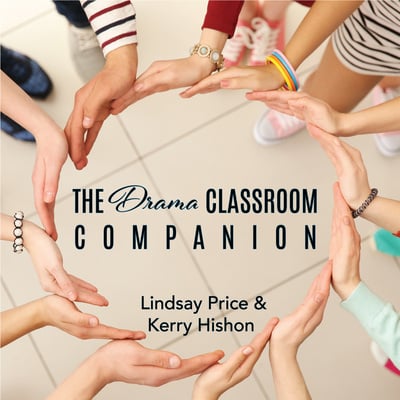The Last Few Weeks Before Showtime
The last few weeks before showtime can be weird. The initial excitement has worn off but things are not quite ready for performance, so a lot of rehearsal is spent reviewing and doing things “one more time” even though it’s never just one more time. It can also be stressful, especially if you feel like things are behind schedule or students aren’t in a good headspace. Everyone probably feels tired and unfocused. But don’t let weirdness or stress get you down! Try these tips to get back on the path to a fantastic show.
1. Mix things up. Rehearsal slump may have set in, so it’s time to bring fresh energy into the rehearsal room. Try rehearsing backwards, starting the run at different scenes, doing line runs, or letting your student assistant director run rehearsal. Invite a trusted guest to watch a run-through and give feedback. Sometimes having an audience helps shake things up for students.
2. Rehearse with costumes and props. As soon as you have costume and prop items, add them to rehearsals. It’s too much to try and add them all at once, especially right before showtime. Use rehearsal props if necessary, and definitely have students rehearse in the shoes (link: https://www.theatrefolk.com/blog/need-rehearse-characters-shoes) they’ll be wearing in the show.
3. Review and practice transitions. Messy or slow transitions bring the flow and pacing of a show to a grinding halt. Do not leave this until the last minute. Who does them? Who moves what? What is the cue to begin the transition? Where do people doing the transition enter and exit, and where do the items go once they’re offstage?
4. Choreograph and practice bows. Some directors leave bows until the last minute because they think it’s bad luck. However, like transitions, messy or unnecessarily long bows take audiences out of the moment. Plan them out and practice them whenever you rehearse or run the final scene of the show. Come up with clever groupings for bows so the audience isn’t sitting (or standing!) for ages.
5. Take breaks. It seems counterproductive when there’s so much to do, but even a five-minute water break can help. Make sure YOU take a break too — have students hold their questions and resist the urge to check your emails. Get up, leave the rehearsal room for a moment, and visit the washroom. Take care of your basic human needs!
6. Do run-throughs. By this point you’re hopefully doing run-throughs of the show, or at least one of the acts. Make notes of what needs review or what has been missed during blocking/choreography rehearsals (there’s always something) and schedule time to address that. As well, ask students what they think they need to work on. Work on that.
7. Have your technicians and crew members come to rehearsal to learn the show. Some student technicians only join the show during tech week, and then have to learn the show super quickly, which can be stressful. Whenever possible, have any students who will be working offstage on the show (running crew, stagehands, costume dressers, sound and lighting technicians, spotlight operators, wireless mic assistants, etc.) watch rehearsals earlier in the process so they’ll know in advance what their responsibilities will entail. Have the stage manager call out cues during run-throughs so students will know what to expect. (This is important for onstage students as well! There will be way less confusion when students know they have to pause for a sound effect or exit/enter in a blackout before tech rehearsal, and sometimes this gets missed in rehearsals for whatever reason.)
8. Share something exciting. Maybe you’re having great ticket sales, your show shirts have arrived, or one of your social media posts about the show has gained a lot of traction. Good news is always welcome! If you share good news at the beginning of rehearsal, it can set a positive tone for the rest of your time together that day. If you share good news at the end of rehearsal, everyone gets to leave on a positive note, regardless of how the rehearsal went.
9. Praise your students. We’re all guilty of occasionally leaning too heavily on constructive notes. We know we’re picking apart all the little details because the students are doing a great job and notes help to make their performances even better. But there comes a point when you need to pump your students up, and positive praise can enhance the really great moments. If your student hears you saying “That was hilarious!” or “Great work, that moment was amazing!” they’re likely to apply that same energy to the rest of their performance.
10. Persevere. You’re almost there. Showtime will arrive quicker than you expect. And if things seem bad at the moment, remember that the “theatre fairies” always seem to sprinkle their magic dust and pull things together in the end. You’ve got this!
Additional Resources:
Tips to Keep Your Rehearsals Focused
Round-Up: Dealing With Production Challenges
Tips and Tricks for a Less Stressed Tech Week
Related Articles
The Drama Classroom Companion
by Lindsay Price & Kerry Hishon
The Drama Classroom Companion is filled with articles and exercises to build the skills needed for theatrical performance as well as real world skills like creative thinking, critical thinking, collaboration, and communication.
The Rehearsal Companion
by Kerry Hishon
You’ve chosen the play, paid the royalties, done the script analysis, held your auditions, and cast the show. Tomorrow is the first rehearsal. Are you ready? Really ready? The Rehearsal Companion can help!





